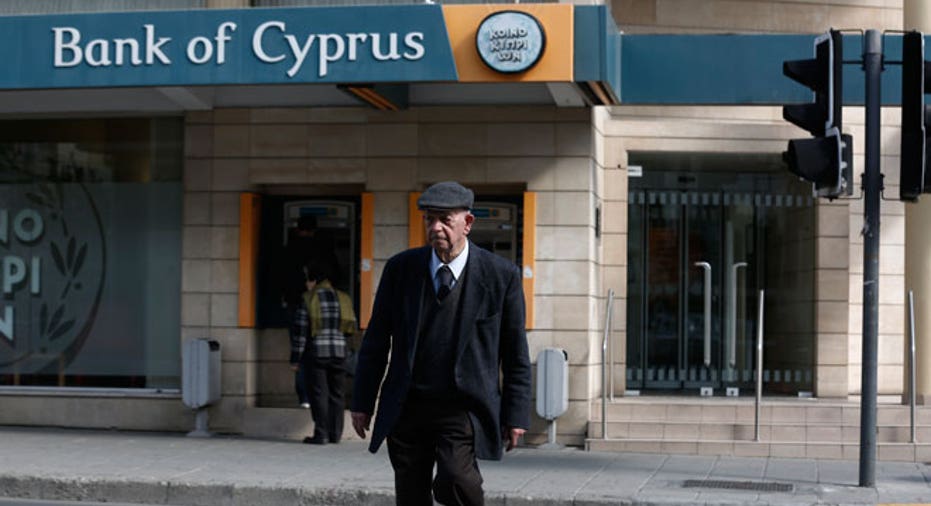Clock's Ticking for Cyprus Bailout Deal

FRANKFURT – The European Central Bank set Cyprus a Monday deadline to agree a bailout plan, threatening to cut off funding to the islands' cash-strapped banks if a program is not agreed by then with the EU and the IMF.
The decision by the ECB's Governing Council, announced on Thursday, gives Cyprus a last chance to agree a bailout that bears the EU/IMF stamp, or else succumb to financial meltdown.
Cyprus has faced the prospect of bankruptcy since Tuesday when its tiny parliament voted unanimously against a levy on bank deposits to raise 5.8 billion euros ($7.51 billion)demanded by the EU under a 10 billion euro rescue.
The ECB's role is crucial because it controls the provision of central bank funds to Cypriot banks - lifeblood without which the island's bloated financial sector cannot function properly.
With Cyprus sovereign bonds ineligible for use as collateral for ECB refinancing operations due to their low credit ratings, the Cypriot central bank is providing banks with Emergency Liquidity Assistance (ELA).
These emergency loans are more easily available, but the ECB's Governing Council must approve provision of ELA.
"The Governing Council of the European Central Bank decided to maintain the current level of Emergency Liquidity Assistance (ELA) until Monday, 25 March 2013," the ECB said in a statement on Thursday as the Council met in Frankfurt.
"Thereafter, Emergency Liquidity Assistance (ELA) could only be considered if an EU/IMF program is in place that would ensure the solvency of the concerned banks," it added.
Cypriot banks are greatly reliant on ELA for funding. At the end of January, they had taken around 9.1 billion euros from the country's central bank through the program, the Central Bank of Cyprus balance sheet showed.
At the same time, the country's banks had taken only 376 million euros from regular ECB liquidity operations. The ECB stopped accepting Cyprus government bonds as collateral in June, which made it more difficult for the country's banks to participate in regular ECB operations.
The ECB's firm stand follows skepticism of some of its policies, particularly in Germany, where the bank has been criticized for being too lax on sticking to rules.
ECB policymaker Joerg Asmussen, a German, stressed on Wednesday that the ECB can only allow the provision of emergency liquidity to solvent banks, and that without an aid program to recapitalize Cypriot banks their solvency "cannot be assumed".
The central bank is in no mood to bend its rules for Cyprus.
Some ECB policymakers, led by Bundesbank chief Jens Weidmann, are still uncomfortable after the central bank agreed last month to a deal to ease Ireland's bank debts.
Weidmann, and some others at the ECB, are concerned the Ireland deal amounts to "monetary financing" - the funding of governments with central bank money, a taboo for the ECB.[ID:nF9E8KH00W]
But Ireland has swallowed a severe dose of austerity medicine and as such is the role model for the euro zone's other debt-ridden economies. Cyprus, unwilling so far to accept the conditions for unlocking EU aid, is not.
(Additional reporting by Sakari Suoninen; editing by Janet McBride)



















